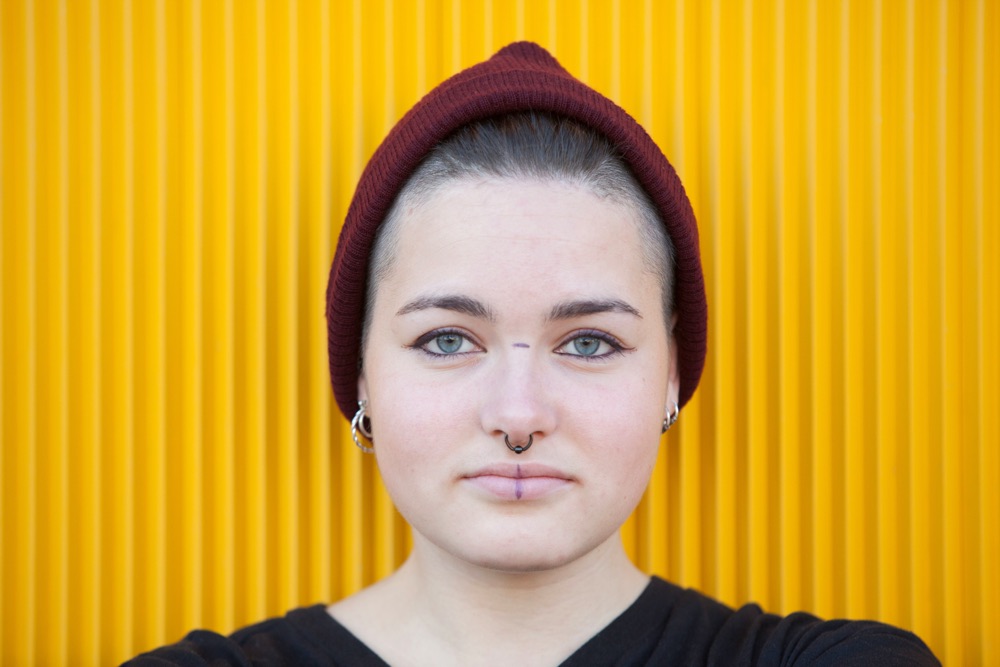Ed’s story

Ed came to Alabaré after finding themselves on the brink of homelessness after returning from Japan, where they had been studying Japanese studies and English literature until the pandemic. On return home, they were unable to return to the family home as their parents had meanwhile moved onto a canal boat.
Ed has struggled with autism, mental health issues and social anxieties for many years and so was not comfortable with the idea of living by themselves, preferring to isolate themselves away, their room was always a mess, and they were not very good at looking after themselves. Although they were nervous about the idea of living by themselves after several interventions by housing options, following a call from the Alabaré team, they were offered a room at Unity House in Chippenham.
I started by asking Ed how it’s been. “A lot better than I was expecting, to be honest. When I first moved in, I was absolutely terrified. I think I had preconceptions about the type of place and the type of people who would be here. But even on arrival, my neighbour helped me move my boxes in, and everyone just accepted me so fast without any judgment or anything. It was a lot easier to adjust to being here than I was expecting. It was difficult at first. I mean, obviously, here, there are all ages and all temperaments. But within a few days, I was hanging out with everyone because everyone was quick to include me, and it honestly feels like, and we all say that it, it is like one big, massive family. We have our fights and differences and whatever, but at the end of the day, we’ve got each other’s backs, and that surprised me. I mean, for the most part, people have their issues, but their hearts are in the right place. So, it’s nice.
Throughout their stay, Ed has been open to taking part in artistic activities under the support of Lisa, The Health and Wellbeing Co-ordinator Lead.
“I’ve always been interested in art, but it’s usually quite dark art. Doing the art project with Lucy gets me back into the creative process, which is always a good idea. But normally, I’ll be focused on the negative, whereas Lucy’s stuff is really positive.
“At the last session, we did this thing, and I was having quite a problem like letting go and not trying to do something specific. And for some reason, I ended up so stupidly happy at having to cover this page in paint and pencil and all, all charcoal and all this stuff. Usually, I only use black and red if I’m painting, and only pencil when I’m drawing, I don’t usually use colours at all. And for some reason, it made me really, really happy. I was just grinning from ear to ear, which made Lucy and Lisa laugh. So, it’s really satisfying creatively. It’s really good. It’s really good.
“I think the biggest takeaway from my involvement with Alabaré so far would be to open myself up to talk to others and learn more about people. Before I came here, I was really shut off. I wouldn’t leave my room when living in university accommodation. I wouldn’t use the kitchen. I would go to class. I would come back. I would stay in my room. Here it’s down to other residents being non-judgmental. Since I’ve been here, I think I’ve learned a lot about why people behave the way they behave and what drives people to act in specific ways or do certain things from a perspective that I hadn’t considered before. Different people are good in different ways. I’ve always prided myself on not putting people in boxes because it always annoyed me when people put me in a box, but coming here, I realised that I had put people in boxes. And now I don’t.
What would you say to other people who perhaps are experiencing challenging times at the moment?
“I always used to think there’s a really good saying, although it used to frustrate me so much, but it’s true. And that is, ‘This too shall pass.’ I would most want people to realise they may be in a crap situation now, but it’s not forever. It doesn’t mean they’ve screwed up their lives. It doesn’t mean that that’s all their life will ever be. They can make progress and make things better for themselves. They just have to be willing to try.”
Thank you, Ed, for your truly heartfelt and very wise words.